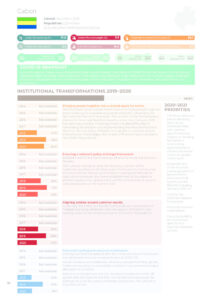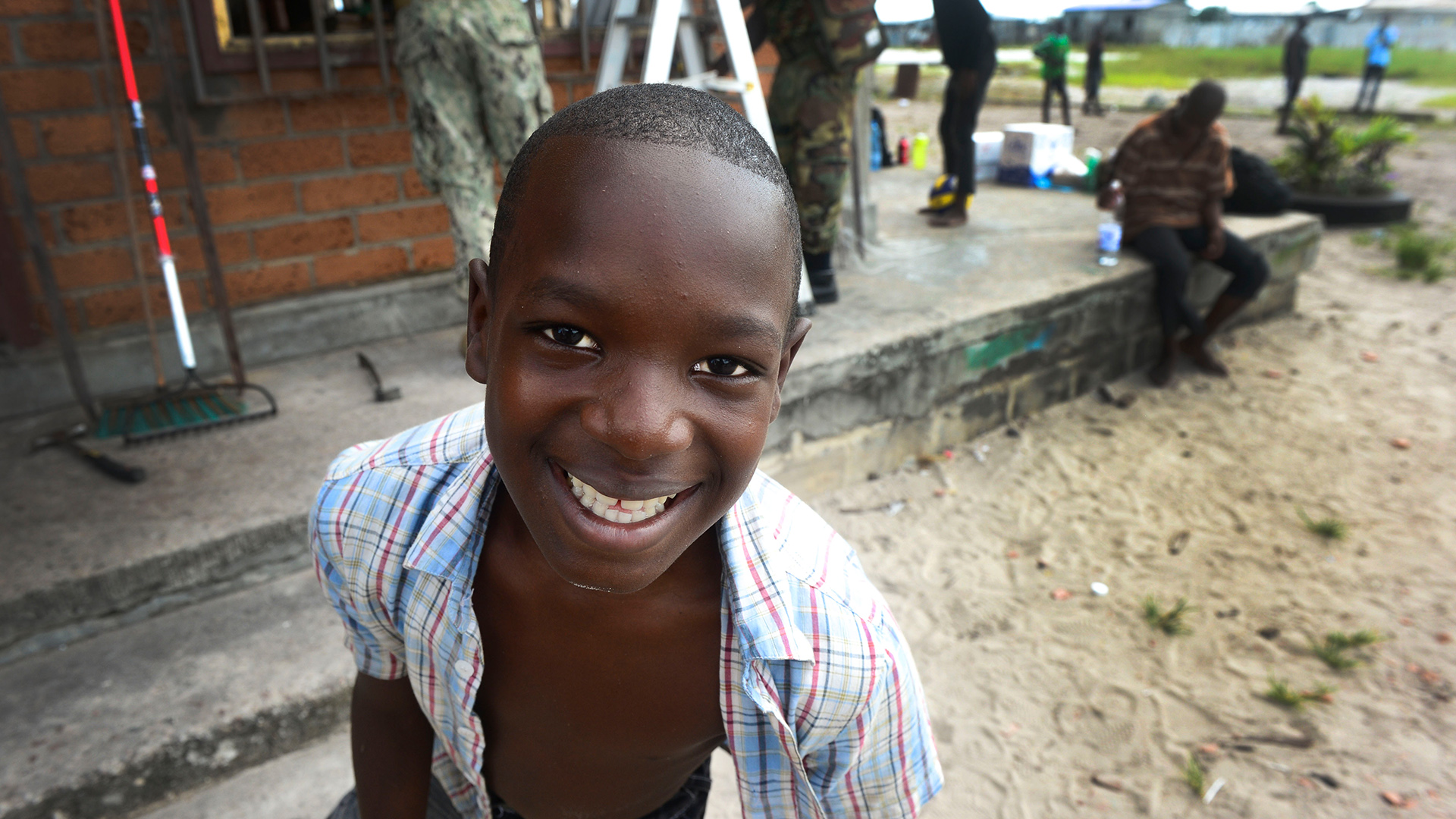Nutrition situation
Under five stunting (%)
17
Under five overweight (%)
7.7
Anaemia in women 15-49 years (%)
59.1
Under five wasting (%)
3.4
Low birth weight (%)
14.2
0 to 5-month-old exclusive breastfeeding (%)
5.1
Adolescent overweight (%)
Male: 10.6
/ Female: 18.9
Adult overweight (%)
Male: 33.7
/ Female: 46.5
Adult obesity (%)
Male: 9.6
/ Female: 20.3
Adult diabetes (%)
Male: 10
/ Female: 10
COVID-19 snapshot
As an oil exporter, Gabon has suffered two crises simultaneously: the effects of COVID-19 and the drastic fall in oil prices. Measures taken included a total lockdown in the capital city, leading to major disruptions to the food system. Although it is poorly integrated into the national response, nutrition has been included in the awareness and seed distribution component.
Institutional transformations 2019-2020
Bringing people together into a shared space for action
There has been great overall momentum in bringing people together and mobilising (for example around the MQSUN+ consultancy for the Common Results Framework). The creation of the Parliamentary Alliance for Food and Nutrition Security, active since January 2020, has been very positive. Challenges have included difficulties in formalising the platform and implementing the National Food and Nutrition Security Policy (PNSAN), for example in nutrition-specific interventions. This is largely due to lack of financial resources and to the COVID-19 pandemic.Ensuring a coherent policy and legal framework
Establishment of the Parliamentary Alliance for Food and Nutrition Security.The nutrition champion (also the Secretary-General of the Parliamentary Alliance of Gabon and of the Economic Community of Central African States) committed to meeting the Minister for Agriculture to request the formal establishment of the tripartite platform (parliament, government and the United Nations system) with participation at the highest level.
Aligning actions around common results
In January, the Common Results Framework was continued and finalised (pending validation) with the support of MQSUN+, but costing could not be completed due to the COVID-19 pandemic.Financial tracking and resource mobilisation
Costing was to be completed after the Common Results Framework was developed, but was not possible due to COVID-19.As part of resource mobilisation, advocacy was planned through the Parliamentary Alliance around the creation of a government budget allocation for nutrition.
Advocacy is still planned with the Resident Coordinator of the UN system and the tripartite platform to mobilise more resources, for example vis-à-vis the various ministries and sectors. This will come into effect in 2021.
2020-2021 Priorities
- Continue advocacy (via an advocacy plan) using conclusive data with contextspecific decision makers on funding for nutrition and existing opportunities to increase domestic resources (public and private).
- Establishment of the tripartite exchange platform (government/ parliament/UN system) on the PNSAN, including during COVID-19.
- Costing the Common Results Framework.
- Financial resource mobilisation.
- Capacity-building for all nutritionspecific and nutrition-sensitive sectors.
Download

